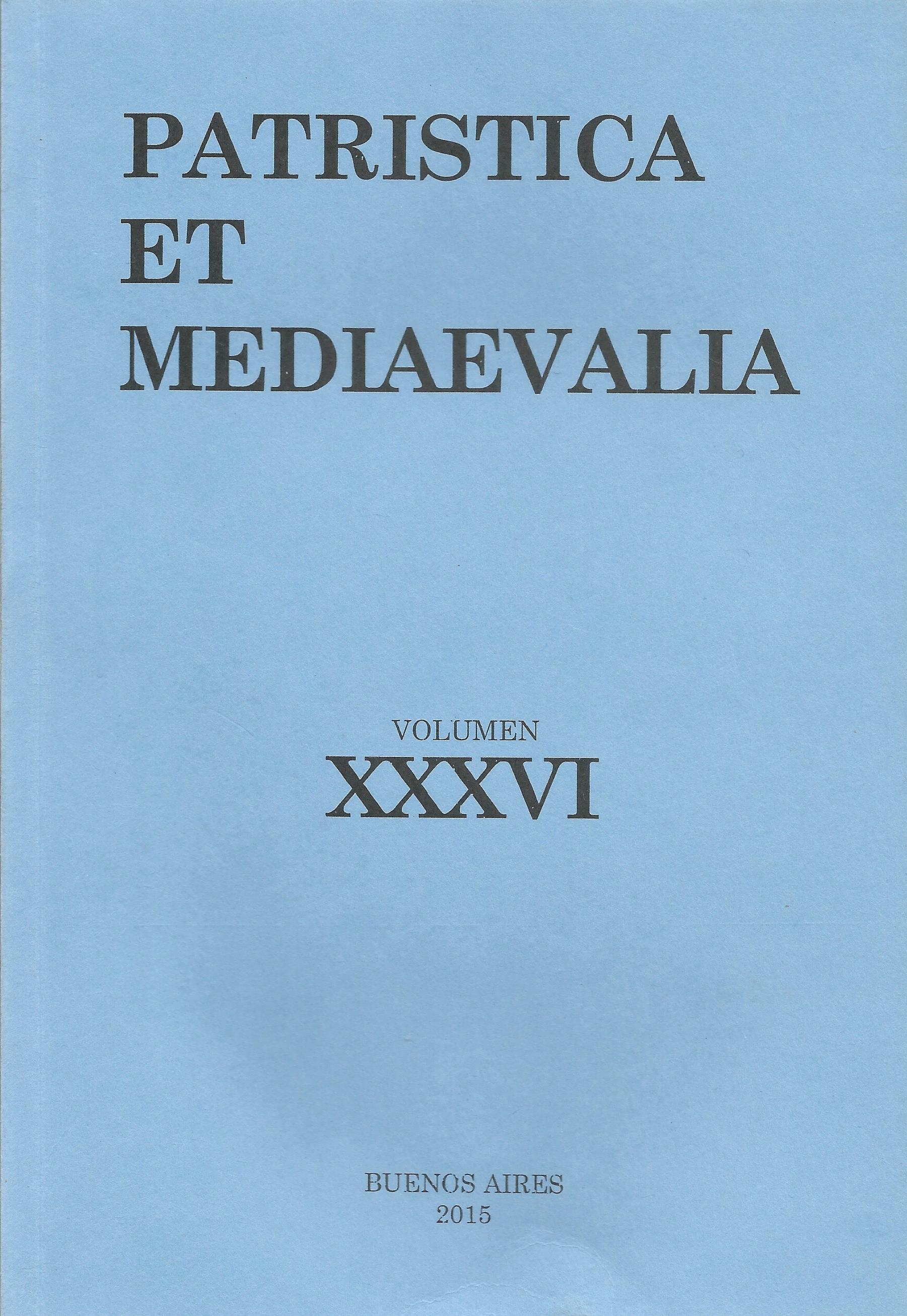On the Prudentia in the First Commentaries to the Ethica Vetus. The Lectura Abrincensis in Ethicam Veterem (ca. 1230)
Abstract
This paper focuses on the way in which the first commentators of the Ethica vetus (Books II and III of Aristotle’s Nicomachean Ethics) understood the notion of prudentia. In order to do this, this work analyses one particular case: the anonymous Lectura Abrincensis in Ethicam veterem (ca. 1230), whose understanding of prudentia is closely related to Phillip the Chancellor’s Summa de bono (ca. 1228). The Appendix offers a critical edition of an excerpt of the Lectura Abrincensis.Downloads
References
Aubenque, P. (2014). La Prudence chez Aristote. Paris: PUF.
Bejczy, I.P. (2011). The Cardinal Virtues in The Middle Ages. A Study on the Moral Thought from the Fourth to the Fourteenth Century. Leiden: Brill.
Bossier, F. (1997). L’elaboration du vocabulaire philosophique chez Burgundio de Pise. En Hamesse, J. (Ed). Aux origins du lexique philosophique européen. L’influence de la latinitas. Actes du Colloque international organisé à Rome (Academia Belgica, 23-25 mai 1996). Louvain-la-Neuve, Fédération internationale des instituts d’études médiévales, 81-116.
Buffon, V. (2008). Éthiques concurrentes au début du XIIIe siècle. La classification macrobienne des vertus dans la première réception de l’Éthique aristotélicienne. Patristica et Mediaevalia, XXX, 29-44.
Buffon, V. (2011). Anonyme (Pseudo-Peckham) Lectura cum questionibus in Ethicam novam et veterem, Prologue. RTPM, 78(2), 297-382.
Buffon, V. (2012). Fronesis: connaissance et dilection du souverain bien chez les maîtres ès arts de Paris vers 1250. En Musco, A et al (ed.). Universilità della Ragione. Pluralità delle Filosofie nel Medioevo. XII Congresso Internazionale di Filosofia Medievale, Palermo, 17-22 settembre 2007. Vol. II.1. Officina di studi medievali, 281-288.
Buffon, V. (2013). Aristóteles políglota. Particularidades del vocabulario técnico aristotélico según algunas traducciones medievales de la Metafísica y la Ética Nicomáquea. El hilo de la fábula, 15, 152-172.
Buffon, V. (2014). Actus, opus, hábitos: discusiones de terminología ética en la primera recepción de la Ética Nicomaquea a mediados del s. XIII. Patristica et Mediaevalia, 35, 3-14.
Cervera Novo, V. (2018). La interpretación cruzada de Categorías XI y Ética a Nicómaco II.8 en la anónima Lectura Abrincensis in Ethicam veterem: un breve recorrido por algunos paralelos medievales y tardoantiguos. En Buffon, V., Cervera Novo, V., Fernández Walker, G. & Bohdziewicz, S. (eds). Philosophia Artistarum. Discusiones filosóficas de los maestros de artes de París (siglos XIII-XIV). Santa Fe: Ediciones UNL (Colección Ciencia y Técnica), 220-254.
Costa, I. (2012). L’Éthique à Nicomaque à la Faculté des arts de Paris avant et après 1277. AHDLMA, 79, 71-114.
Fidora, A. & Akasoy, A.A. (2002). Hermannus Alemannus und die Alia Translation der Nikomachischen Ethik. Bulletin de Philosophie médiévale, 44, 79-93.
Gauthier, R. A. (1963). Arnoul de Provence et la doctrine de la fronesis, vertu mystique suprême. Revue du Moyen Âge Latin, 19, 129-170.
Gauthier, R. A. (1970). L’exégèse de l’Éthique à Nicomaque: essai d’histoire littéraire. En Gauthier, R.A. & Jolif, J. Y. Éthique à Nicomaque. Introduction, traduction et commentaire. Vol. I París: Peeters-Nauwelaerts, 111-146.
Gauthier, R. A. (1975). Le cours sur l’Ethica nova d’un maître ès arts de Paris (vers 1235-1240). Archives d’histoire doctrinale et littéraire du Moyen Âge, 42, 71-141.
Ingham, M. B. (2005). Phronesis and Prudentia: Investigating the Stoic Legacy of Moral Wisdom and the Reception of Aristotle’s Ethics. En Honnefelder, L, Wood, R., Dreyer, M. & Aris, M. (Eds). Albertus Magnus und die Anfänge der Aristoteles-Rezeption im lateinischen Mittelalter. Aschendorff: Münster, 631-655.
Ingham, M. B. (2008). La vie de la sagesse. Le Stoïcisme au Moyen Âge. Éditions du Cerf, Academic Press: Paris/ Fribourg.
Lafleur, C. & Carrier, J. (2005). Dieu, la théologie et la métaphysique au milieu du XIIIe siècle. Revue des sciences philosophiques et théologiques, 85, 261-294.
Zavattero, I. (2010). Le Prologue de la Lectura in Ethicam ueterem du ‘Commentaire de Paris’ (1235-1240). Recherches de Théologie et Philosophie Médiévales.
1. The authors who publish in this magazine accept the following conditions:
-
They retain the copyright and grant to the magazine the right of the first publication, with the work registered under the Attribution-ShareAlike 4.0 International License that allows third parties to use what is published as long as they mention the authorship of the work and the first publication in this magazine.
-
They can make other independent and additional contractual agreements for the non-exclusive distribution of the version of the article published in this magazine (eg. include it in an institutional repository or publish it in a book) provided that they clearly indicate that the work was first published in this journal.
-
They are allowed and recommended to publish their work on the Internet (for example on institutional or personal pages).
2. AutoArchive Conditions. Authors are allowed and encouraged to distribute post-print electronic versions of their manuscripts because it promotes their circulation, a possible increase of quotation and a major reach among the Academic community. Color RoMEO: blue.













